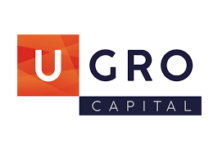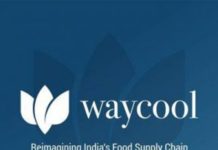
Dubai, United Arab Emirates, Monday, March 25, 2013 — (Business Wire India) — The total water consumption of the Middle East is expected to rise to 319 billion cubic meters (BCM) by 2020, with agriculture utilising the bulk. Population and economic growth, paralleled by industrial diversification, is placing immense pressure on water demand.
The suitability of treated wastewater for agricultural irrigation and the increased focus on wastewater reclamation and reuse as a sustainable way to manage diminishing water supplies are set to unfold opportunities for advanced water and wastewater treatment solutions, including membrane bioreactor (MBR) technology.
New analysis from Frost & Sullivan ( http://www.environmental.frost.com ), Analysis of the Middle Eastern and North African (MENA) Membrane Bioreactor Market , estimates the market to reach $280.3 million in 2015. The research covers municipal, commercial, residential, and industrial end-use sectors.
With the business environment becoming transparent and conducive in the Middle East, these ‘frontier’ economies are expected to infuse funds into the urban water and sanitation infrastructure to achieve Millennium Development Goals, and lessen the reliance and deterioration of dwindling ground water resources. All these point to an uptrend in the use of reclaimed wastewater.
“On an average, 50 per cent of Middle Eastern countries’ population is connected to wastewater networks,” noted Frost & Sullivan Environmental Industry Manager Sasidhar Chidanamarri. “This creates tremendous opportunities for wastewater treatment and recycling technologies.”
The Middle East has been at the forefront of embracing new water and wastewater treatment technologies. In wastewater treatment, the region boasts of large capacity MBR systems that treat domestic and industrial effluents with higher efficiency, ensuring that pollution is minimised. The growth prospects for MBRs in the Middle East are substantial, considering the potential for recycling and reuse of grey water (domestic sewage) and industrial effluents.
However, market penetration will not be easily achievable due to high costs of treatment technology, negative societal perceptions, poor collection and network infrastructure, and lack of a skilled workforce.
“Luring customers with cost-optimisation solutions is an effective means to gain market share,” advised Chidanamarri. “Strategic tie-ups with vendors of spares, chemicals, and equipment will allow suppliers offerings to be cost effective. In the long run, associating with original equipment manufacturers will also be of immense value to membrane manufacturers to participate in new MBR projects, as well as address replacement demand successful.”
Strategic tie-ups with engineering, procurement, and construction (EPC) companies also represent a strong way to create stable demand for membrane-based products and to promote MBRs, as these EPC companies can recommend various technological options to the end user.
If you are interested in more information on this study, please send an e-mail with your contact details to Tanu Chopra, Corporate Communications, at [email protected] .
Analysis of the Middle Eastern and North African (MENA) Membrane Bioreactor Market is part of the Environmental Growth Partnership Service programme, which also includes research in the following markets: Water and Wastewater Sector in Saudi Arabia, Water and Wastewater Infrastructure Market in MENA Countries, and Water and Wastewater Sector in the United Arab Emirates. All research included in subscriptions provide detailed market opportunities and industry trends evaluated following extensive interviews with market participants.
About Frost & Sullivan
Frost & Sullivan, the Growth Partnership Company, works in collaboration with clients to leverage visionary innovation that addresses the global challenges and related growth opportunities that will make or break today’s market participants.
Our “Growth Partnership” supports clients by addressing these opportunities and incorporating two key elements driving visionary innovation: The Integrated Value Proposition and The Partnership Infrastructure.
— The Integrated Value Proposition provides support to our clients throughout all phases of their journey to visionary innovation including research, analysis, strategy, vision, innovation and implementation.
— The Partnership Infrastructure is unique as it constructs the foundation upon which visionary innovation becomes possible. This includes our 360-degree research, comprehensive industry coverage, career best practices as well as our global footprint of more than 40 offices.
For more than 50 years, we have been developing growth strategies for the global 1000, emerging businesses, the public sector and the investment community. Is your organisation prepared for the next profound wave of industry convergence, disruptive technologies, increasing competitive intensity, Mega Trends, breakthrough best practices, changing customer dynamics and emerging economies?
Contact Us: Start the discussion
Subscribe: Newsletter on “the next big thing”
Register: Gain access to visionary innovation
Analysis of the Middle Eastern and North African (MENA) Membrane Bioreactor Market
P4F2-15
CONTACT DETAILS
Tanu Chopra, Corporate Communications – Middle East and North Africa, Frost & Sullivan, +91 9820480089, [email protected]
Nimisha Iyer, Corporate Communications – Middle East, North Africa and South Asia, Frost & Sullivan, +91 9820050519, [email protected]





























